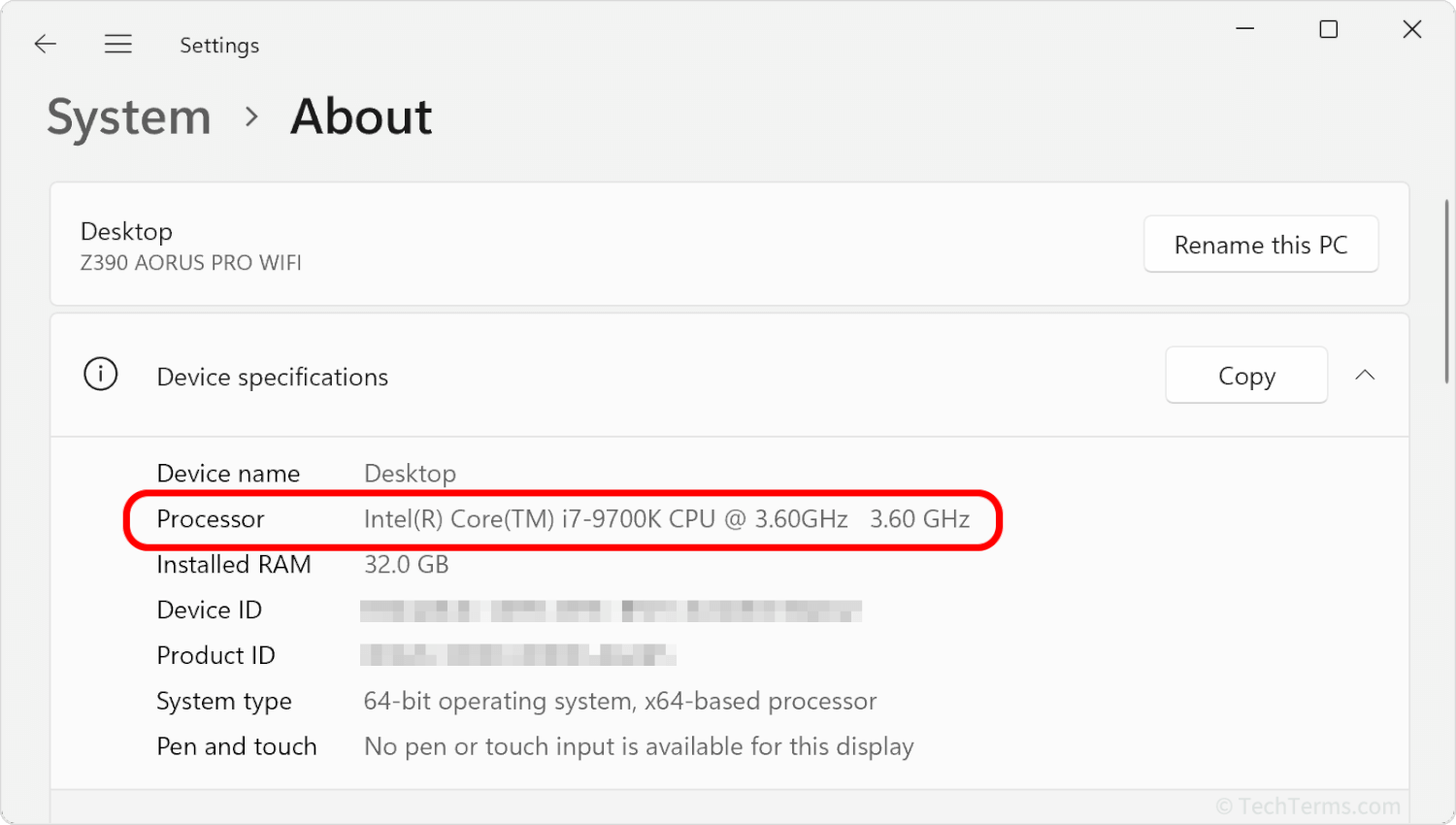Clock Speed
Clock speed measures how many processing cycles a processor can complete per second. It is typically measured in megahertz (millions of cycles per second) or gigahertz (billions of cycles per second) — for example, a processor with a clock speed of 3.0 GHz can perform 3 billion cycles per second. A processor's clock speed is one of its primary specifications and contributes to its total performance.
A CPU's clock speed is determined by multiplying a base clock signal (provided by the motherboard) by an internal multiplier value on the processor itself. For example, if the base clock signal is 100 MHz and the processor multiplier is 30x, the processor runs at a clock speed of 3 GHz. Some high-end processors have an unlocked multiplier that can be changed in the BIOS or UEFI settings, allowing you to overclock the processor. A CPU may also have a turbo mode (called Turbo Boost on Intel CPUs and Precision Boost on AMD CPUs) that automatically increases clock speed when the processor is under high demand. However, this consumes more energy and thus produces more heat, so a processor can only engage this mode temporarily before returning to its base speed.
When all other variables are the same, a processor with a higher clock speed will outperform a slower one. However, other architectural factors can also affect processor performance, limiting how well clock speed can serve as a point of comparison. For example, some architectures may use optimized instruction sets to reduce how many cycles are needed to perform certain functions. Increasing the number of processor cores can also increase performance without increasing clock speed, allowing one processor to perform more simultaneous calculations. In many cases, a newer processor with a more optimized architecture will outperform an older processor running at a higher clock speed, so it is more helpful to consult performance benchmarks when comparing CPUs instead of relying on clock speed alone.

 Test Your Knowledge
Test Your Knowledge